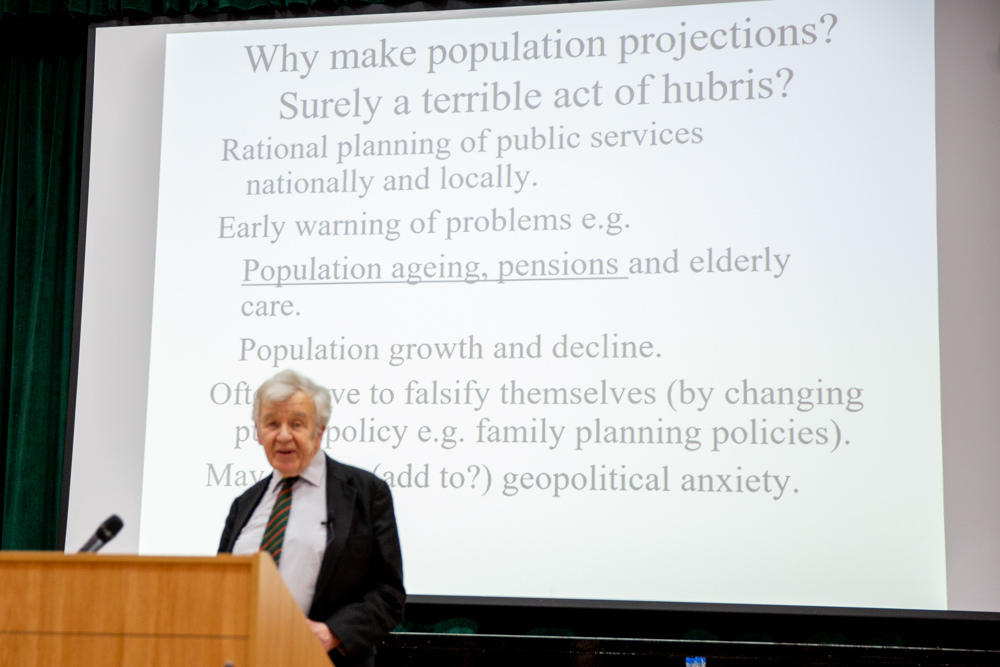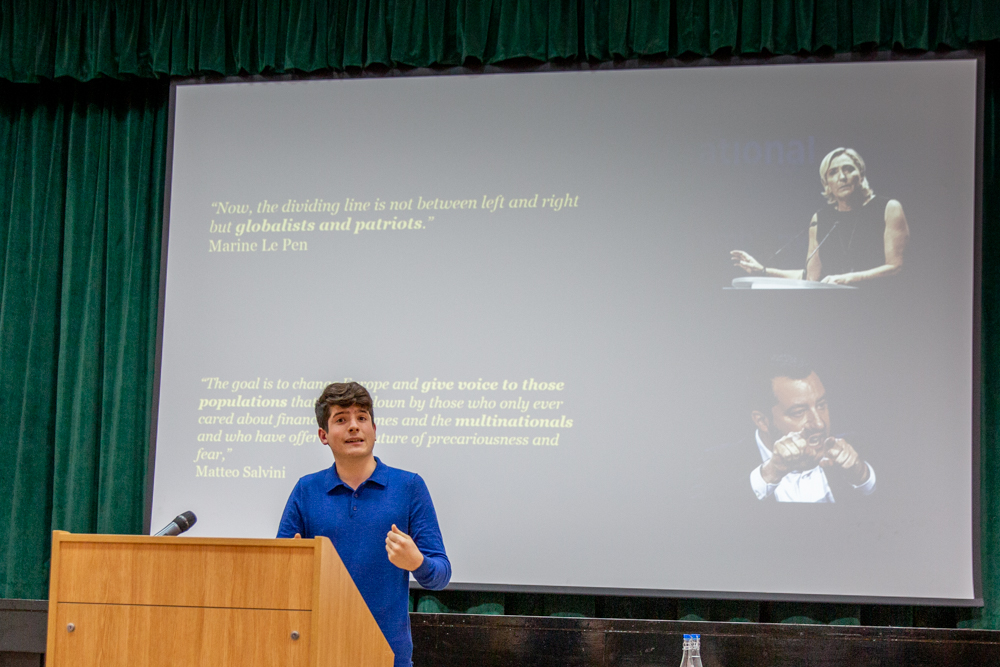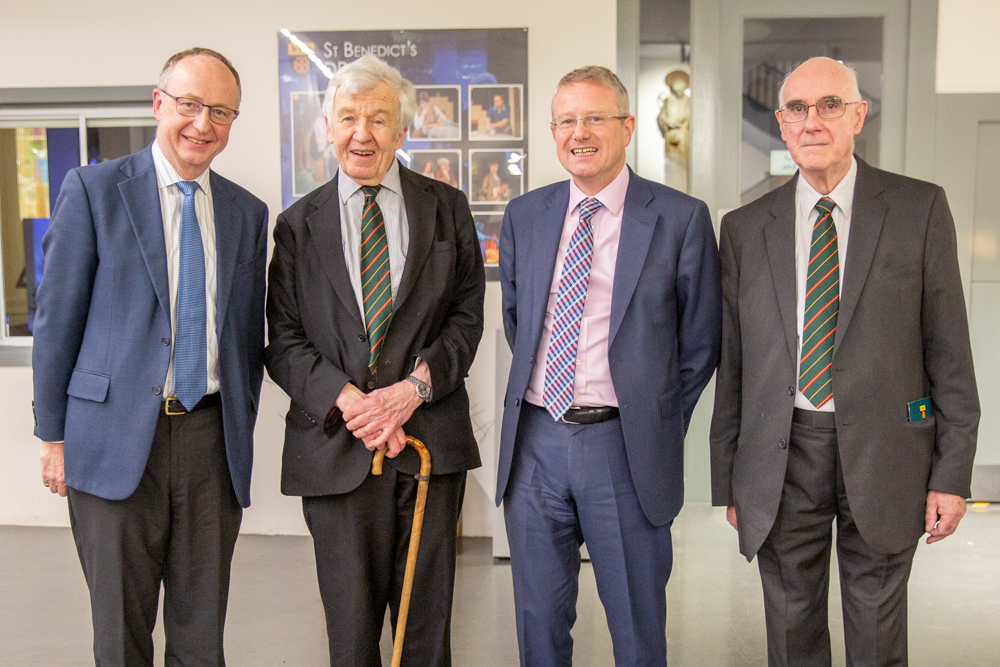The Richard Baker Science Lecture 2019

This was a fascinating evening, in which we heard from Oxford Professor David Coleman about Population Projections, and sixth form student Finlay Healy on National Populism.

We were delighted to welcome Old Priorians, parents, staff and pupils to the third Richard Baker Science Lecture on Tuesday, December 3rd.
This year, the lecture was given by Professor David Coleman (OP 1964), on the subject of The Science of Population Forecasting – or is it?
Professor Coleman’s talk covered a lot of ground; from man’s early attempts to predict population growth (by counting the cracks on a tortoise shell) to complex formulae, intriguing graphs, and neurological research into why we have children – the ultimate question.
He began by looking at why we make population projections – a complex and even hubristic business – and outlined how they inform rational planning of public services, and provide early warning of problems such as population ageing, with their implications for pensions and elderly care. We were also reminded that such projections can provoke dangerous responses, in the form of protests against pensions and retirement reform, as seen in France, Italy and Greece.
Professor Coleman introduced us to the Rev T Malthus (1766-1834), who thought that "the vast exponential capacity to reproduce, colliding with the modest ‘linear’ capacity to produce food, could only be resolved through the harsh checks of starvation, disease and war." (He later thought that delayed marriage, postponed according to the pressure of population on wages, would act as a ‘negative feedback’ to lower birth rates and keep population growth at manageable levels.) We also considered China’s one child policy and its implications for an ageing population; and the fall in Italy’s birth rate, contrasting with the very high birth rates of many countries in sub-Saharan Africa, such as Niger, where the average woman has 7.2 children (and where one in four children dies before the age of five.)
Population projections are always wrong, he concluded, because assumptions about the future can never be certain. What matters is how wrong the forecasts are, given their influence on government policies.

Finlay Healy (Upper 6th), opened the evening with an impressive presentation of his EPQ project: The rise of national populism in Italian and French politics since the recession of 2008. Finlay talked about how national populism essentially promises to represent the interests of people whose perceive that they have been neglected, by distant and often corrupt elites. He concluded that the Overton window – the range of policies politically acceptable to the mainstream population at a given time – has shifted to a more radical position over the last decade.
The Science Lectures have been generously endowed by Dr Francis Cuss (OP 1972), who attributes much of his passion for science, and his successful career in medical research, to Richard Baker’s inspirational teaching. Speaking at the end of the evening, Dr Cuss praised Finlay for his extremely engaging presentation, and thanked Professor Coleman for his fascinating talk, which reminded him of Republican presidential candidate Dan Quayle’s words in 2000: “Predictions are hard to make, especially about the future.”
